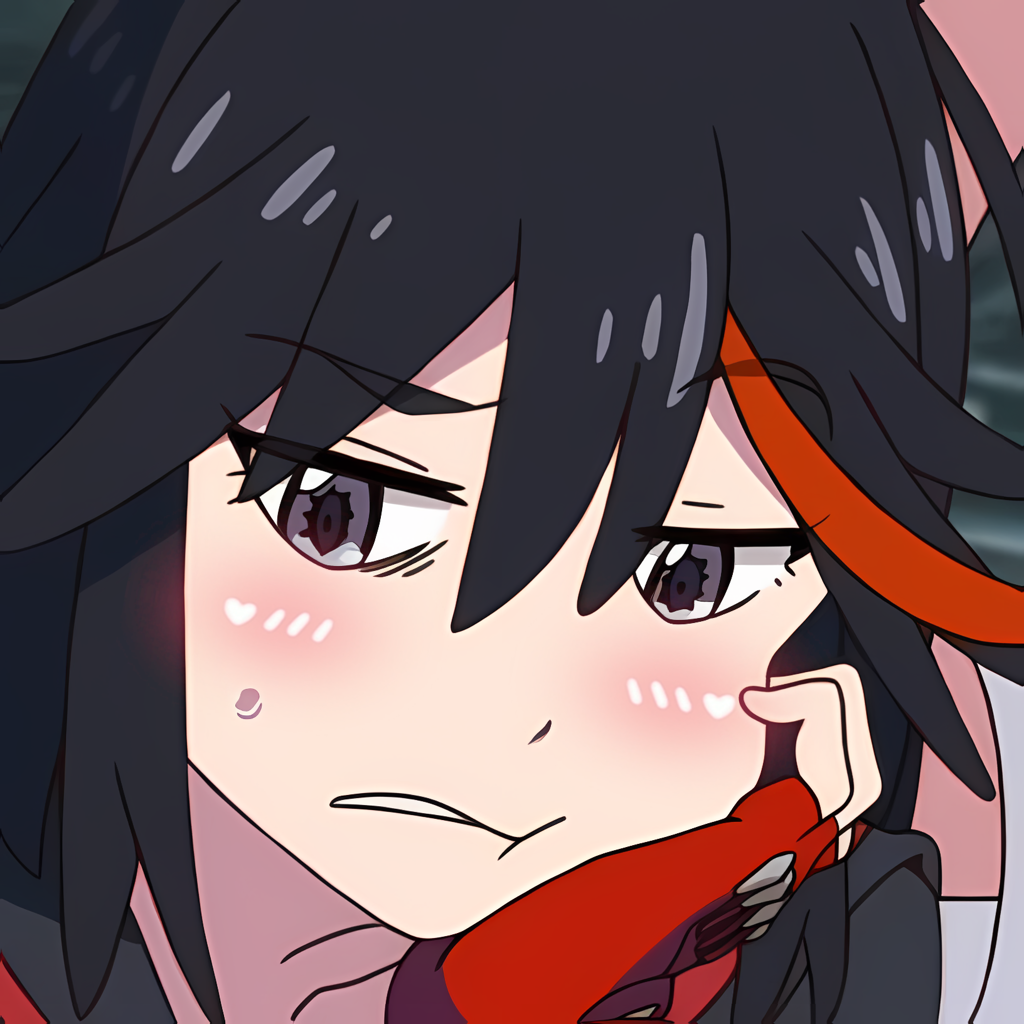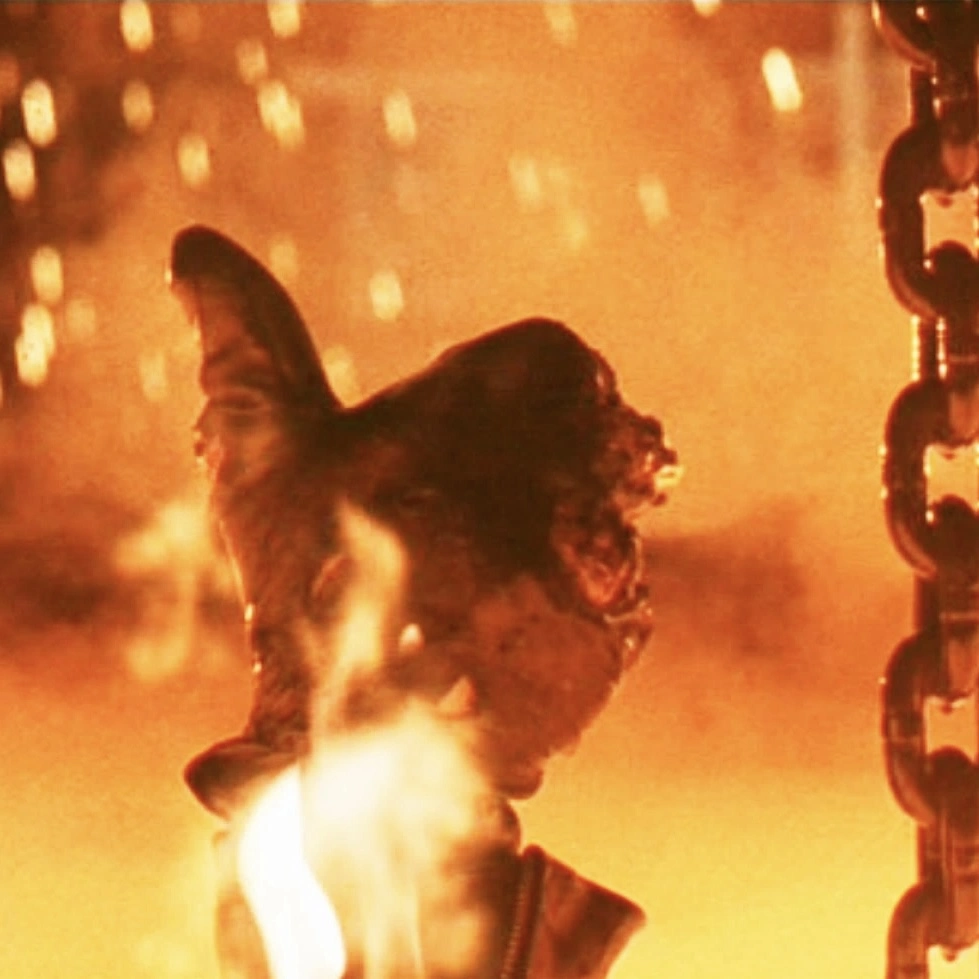- cross-posted to:
- leftymemes@lemmy.dbzer0.com
- cross-posted to:
- leftymemes@lemmy.dbzer0.com
That’s not “liberal economics”, that’s just “Capitalism in practice”.
Have you noticed how liberalism is always pro-capitalism?
Uh, liberals tend to want to shift capitalism towards something more equitable - you know, something that doesn’t leave so many people jobless or homeless.
liberals tend to want to shift capitalism towards something more equitable
No, they don’t - they try to reform capitalism to head off revolt against the capitalist status quo. That is why liberal reforms to capitalism (at best) only makes life better for a certain part of the working class - see how Roosevelt’s GI Bill left black vets and their communities out in the cold for an example. When this fails to protect the capitalist order, liberal-types will happily co-operate with fascists to violently repress the working class - see Weimar Germany for an example of that.
If you are the reading type, I’d suggest Clara Mattei’s The Capital Order: How Economists Invented Austerity and Paved the Way to Fascism - I haven’t encountered anyone who explains the history as well as she does.
Liberals are not your friends - Malcolm X was perfectly accurate when he described them as “smiling foxes.”
You just said the same thing twice
Welcome to Lemmy
Where is the difference?
So if your question is in good faith let’s break it down a little.
Capitalism is a economic system. It may have some liberal or conservative slant inherently, but in theory there isn’t anything implicit.
A liberal or conservative economic policy would be how you manage that economic system. Liberal economic policy should tend to favor rules and regulations to account for the flaws of unchecked capitalism. Conservative policy tends towards less regulation, relying on the market system to set prices for goods and services.
Personally, I’m liberal because the ultimate goal for any capitalist is a monopoly. Often in that situation, you get an unequal power dynamic that allows a company to stay ahead of competition or bully them out of the market, preventing the market from setting prices. Additionally liberal policy tries to regulate negative externalities, such as companies dumping chemicals in a river (such as when the Ohio river caught on fire leading to the creation of the EPA). Frankly, these are real problems inherent in capitalism that conservative policy doesn’t address because it makes the rich richer. It’s pretty disingenuous to argue that liberal policy is there to benefit the rich.
Anyway, that’s a super basic breakdown. None of that is say there isn’t corruption from the rich and greedy in politics. Frankly, money equating to political influence is crazy and has allowed the weathly to completely shape world policy. If you want change, look to rank choice voting systems or other ways to move more choice and power back to voters.
I appreciate you trying to answer a question in good faith, but you’re conflating ‘liberal’ with ‘vaguely left-leaning’, and none of what you’ve said makes any sense outside of current US political ‘discourse’ where ‘Liberal’ means ‘slightly left-wing’.
What you describe as liberal economics is closer to Keynsianism or Social Democracy.
In economics, the ‘Liberal’ school of thought is generally against regulation and interference in the market, seeing it as being ‘self-regulating’. In economic terms, Reagan and Thatcher were Liberals - hence them being associated with ‘Neoliberalism’.
The whole thing you said about Capitalism tending towards monopoly is actually a very Marxist/Socialist idea - Liberal economic theory tends to argue that monopolies form because of government and that they wouldn’t occur in a truly free market (although its more nuanced than that, there’s major disagreements over ‘Natural Monopolies’ etc. within the Liberal school). Source: look up any Liberal economist/thinker and their view on monopolies. E.g Friedman, J.S Mill.
Capitalism being an economic system doesn’t make it apolitical. ‘In theory’ Liberalism and Capitalism are very very closely intertwined, it’s not implicit, it’s absolutely explicit if you read any Liberal political or economic theory.
Economics is inherently political.
https://plato.stanford.edu/entries/neoliberalism/#Libe Sections 3 and 4 of this are a decent starting point.
Also the idea of slightly changing our voting systems as the way to drive change is quite hilarious. Sure, moving away from FPTP would probably help a bit, but it’s not like countries with other systems are doing fine. These issues are more fundamental. And historically, fundamental change has never occured through small technical adjustments to political systems.
Good response! Thanks for the further reading! I was never an economics student, this post just felt like disingenuous US political arguments so I appreciate someone with a real background chiming in!
You’re welcome!
I’m not an expert by any means, but did Politics and Economics as my undergrad and did decently well in it; am happy to share my knoweldge. Also wanted to apologise if parts of my previous post seemed a bit condescending, wasn’t my intention.
Would be happy to debate/discuss more at any point if you’re interested.
Figure I might as well drop some more reading recommendations:
Specific to the topics of the discussion:
Chapter 14, from 23 Things They Don’t Tell You About Capitalism by Ha-Joon Chang This basically expands on the meme, and explains the connection between liberal economics and ‘pro-rich’ economics, in only 9 pages. Not very in-depth, but quite good and readable - although note that this book is very much a pop-economics polemic, and Chang is an Institutionalist economist and very skeptical of ‘free market’ economics. He’s fairly controversial among economists, but not super radical or anything. Link to pdf of this chapter only. The whole book is free to borrow on Archive.org.
Chapter VIII ‘Monopoly and the Social Responsibility of Business and Labor’, from Capitalism and Freedom by Milton Friedman. For a free-market take on monopolies, although a bit of an outdated take (the data has changed a lot, but the general arguments are still relevant). Free on Archive.org
Are markets efficient or do they tend towards monopoly? The verdict is in, by Joseph Stiglitz Pretty short article that expands on our discussion about monopolies in the modern world. Link to article
Chapter 2, Section 3 of ‘The Poverty of Philosophy’ by Karl Marx This is basically Marx arguing against Proudhon, so a lot of it is weird out of context, but does sum up Marx’s views on monopolies. As with most Marx, not super easy to read, but very interesting. Link to text from Marxists.org
Chapter 2, ‘Liberalism and Liberal Thinkers’, from 101 Great Liberal Thinkers by Eamonn Butler A summary of liberal ideas, written by a self-described (neo)Liberal and founder of the Adam Smith Institute. Freely available from the American Economic Association
More Generally Relevant / In-Depth Stuff:
The Wordly Philosophers by Robert Heilbroner Is a nice and readable intro to the history of economic thought, would recommend for an enjoyable read and broad overview. Available to borrow on Archive.org
Economics: The Users Guide by Ha-Joon Chang This is somewhat of a ‘pop-economics’ text so is quite readable, but also has solid knowlege. Chapter 4 has a nice summary of some of the major schools of thought, and there’s a lot of interesting economic history in here as well. Available to borrow on Archive.org
Market Reasoning as Moral Reasoning: Why Economists Should Re-engage with Political Philosophy by Michael Sandel Short article with interesting arguments about the limits of economics as a field, especially in considering the moral implications of allocating resources using markets. Freely available from the American Economic Association
Chapter 3, ‘The Nature of Heterodox Economics’ from ‘Essays on the Nature and State of Modern Economics’ by Tony Lawson Although this one is very academic, chapter 3 is only about 20 pages long and has a fairly good summary of some of the assumptions and criticisms of ‘modern mainstream economics’ vs ‘heterodox economics’. The rest of the book is excellent as well, it’s focused on a critique of modern economics and its attempts to be a ‘hard science’ by using lots of maths and models, with questionable results. Link to a pdf here.
Chapter ‘The Place of Liberty’ from An Introduction to Political Philosophy by Jonathan Wolff Especially recommend the section on problems with liberalism Available to borrow on Archive.org
The Economy by Core Economics This is just a textbook, not exactly light reading but it’s free and written by some pretty high-profile (mainstream) economists. It’s what I was mainly taught from so if you’re interested in what they teach at mainstream econ courses but want to skip the whole ‘paying massive tuition fees’ part, here it is. Link to the textbook on their website.
Also, Marginal Revolution has good stuff on econ on their YT channel and website; they are very pro-free market.
Hope this is interesting and/or useful, have a nice day!
USian detected.
I appreciate your effort, but my comment probably wasn’t what you would call “good faith”.
Even leaving aside the rather odd US scale, a liberal economic system is inherently capitalist, since capitalism is defined by private ownership of the means of production, wage labour, exploitation of workers and pricing in a market. All this is still present in what you call a liberal economic system (even if some of these effects are dampened) without touching the root of the problem, so it is indistinguishable from, or even equal to, capitalism, whether in an unregulated or regulated flavour.
This is definitely not “Liberal Economics”.
Neoliberal economics
“Further right than leftists” economics
Liberal economics be like let’s get rid of capitalism
No, those are socialist economics.
To-may-to to-mah-to
Yeah that’s the scam. Not actually liberal
It appears you havent read your own link there.
I don’t know if I can be clearer than it is. It’s very obvious that capitalism is not compatible with liberalism. Conservative capitalists try to use terms like “economic liberalism” with results showing the opposite
Liberals espouse various views … but generally support private property, market economies, … economic and political freedom …
and when we click on “economic freedom”:
One approach to economic freedom comes from the liberal tradition emphasizing free markets, free trade, and private property under free enterprise.
The commenter suggesting you should read your own links was right…
That’s left or socialist. Left doesn’t equal liberal.
Left doesn’t equal liberal and liberal equals not capitalism. Both are true
I think you’re confusing the US definition of liberal with the definition of liberal in near the rest of the world. Even in Canada the Liberals are centre at best
Nah I’m not. I know that US/UK/AUS/anglosphere capitalists try to say they’re liberal but there’s nothing liberal under a capitalist hierarchy. Apparently they’re trying to be sneaky in Canada as well
Ahh gotcha, I wasn’t sure. And yeah the Liberals here are like progressive classic conservatives. They’re not insane like current conservatives but they like to maintain the current status quo and will occasionally give us something like dental care but limit it to a very small subset of people. And that’s only if forced to by the supporting left leaning party (NDP).
Yeah exactly. Conservatives & authoritarians really like to market with phrases like “economic liberalism” or “free markets”. Always building a power structure which limits freedoms
Neo liberal, but yes.
How is a liberal not a capitalist supporter?
There’s a drastic difference between a neoliberal and a liberal. They’re very different terms.
that’s billions of tax payers money with the tax burden being disproportionately heavy for the 90% while the 10% pay less and less taxes the richer they are
I like how on lemmy you see both how much upvotes and downvotes you have, on reddit you could have a score of 1 and don’t know much has happened, but with lemmy you could have 50 upvotes and 49 downvotes, making you really think about it…
Not only that, but admins and kbinners can actually view which accounts upvoted and which downvoted each comment.
I thought everyone can see it? Not just admin
Everybody can see the number of upvotes and downvotes. But on kbin you can literally see which accounts upvoted and which accounts downvoted.
All interesting things, I’m gonna learn more about these things.
What’s a kbinner?
A user on kbin
False, the bottom 90% paid about 25% of income taxes (in the US at least). https://taxfoundation.org/publications/latest-federal-income-tax-data/
it’s about the percentage of income paid, not the net sum
Ok, so what percentage of income do the various income brackets pay?
Why don’t you look it up?
But I think what they mean is that the 90% are more affected by it, because proportional it’s a bigger chunk of their income missing.
But I could be wrong
aka “Reaganomics”
While this is definitely a true flow chart, the headline is misguided. Considering the only difference between the right and left when it comes to corporations is how honest they are about their policies. The right says they will do it, the left says they won’t, and then they both do exactly the same shit.
that’s not a left/right divide. it’s a right/further right divide. And even staunch conservatives follow (neo)liberal economics.
This is a flow chart from a leftists/socialist perspective
deleted by creator
Socialism is defined as the working people either directly owning or democratically controlling the economy. I don’t see how that is the case in any “socialist” country at the moment (speaking of the nordic ones, Portugal, China etc)
deleted by creator
Hey hey hey now don’t bring us Nordic countries into this🥺
sorry to disillusion you but your system is capitalism with a nice coat of paint over it. It’s still based on exploitation, imperialism, neo-colonialism and oil/fossil fuel money
Lmao you are literally the ‘but that’s not real socialism/communism’ meme right now 🤣
Imma bring up an example to maybe explain it easier. North Korea calls itself the “Democratic Peoples Republic of Korea”. In their official understanding/rhetoric they have a democracy in which the administration acts in the interest of the people instead of a few bureaucratic elites. In reality it’s the other way around. Now, if someone said “Look at what democracy does to a country!!11!”, would you not object?
God damn that is an excellent, concise refutation of his tired point. Definitely going to borrow that argument in the future
yeah… the cognitive dissonance hurts
This comment will not go down well here, this site leans left pretty heavily and it’s easy to upset them lol
While this is true, most left leaning people still know how economy works and why it should keep on working.
Germany is considered heavily left leaning nowadays. Especially in comparison to countries like the US. But that doesn’t mean that Germans are suddenly borderline communist.
lol, who in their right mind considers germany as left leaning?
Yankees.
I am German. And Bernie sanders was even more konservative than us.
Probably, but considering Germany as a left-leaning country is still rich.
It sounds more like your perception of Germany is a little displaced from reality.
Where will you go when you realize the majority of people don’t subscribe to the right wing scam?
deleted by creator
…you say without giving a fact to base your comment.
Can you see that you’re a hypocrite?
Your comment is retatded, btw.
They usually do this because other things depend on it, so it cannot collapse or they percieve it as such/ that that is important/ that for example workers can’t go somewhere else. They don’t see how the benefits don’t outweigh the risk.
deleted by creator
I think there are many things governments base their decisions on that are just outright false.
Theyre always trying to widen the gap between the upper and middle/lower class. They hate you and believe the only reason you exist is to make them money. People often blaim capitalism but this isn’t the real issue. Its the politicians who are in bed with the corporations.
“liberal economics” ? Seriously? This flowchart describes every POS robber baron capitalist for the last several centuries.
Economic liberalism is the economic theory of both American parties. Idk how it came to be applied to only the democratic party but that’s incorrect. OP is presumably critiquing economic liberalism from a leftist perspective, of which the Democrats are not
those are the effects of liberal capitalism
Right?! This is gaslighting pure and simple. Trump gave tax breaks to his corporate cronies on the backs of the poor and middle class. Was Trump a liberal? How about Bush? Clinton (who was a Democrat) made substantial strides toward fixing the economy. But I guess he was a conservative? Idiots don’t know the meanings of words. Next you’ll tell us that socialism and communism are both the same thing and what liberals want for the country.
Now I must ask, who are you implying is giving money for free to investors?
Because that’s not how economy works.
sir, this is a
Wendiesmeme. In the end it boils down to the capitalist goverments bayling out those who don’t need it (billionaires and millionaires) and giving credit for virtually nothing. Ofc it’s a simplification since this is a meme, not a chart for econ classBut that’s how capitalism works. You invest your money into something instead of using it on yourself.
And in exchange for the risk taking, because each investment is a huge risk, you become (in case of stocks) a shareholder. And a as a shareholder and risk taker, you get compensated for your risk taking with dividends.
Why invest your own cash into something and take a risk without getting something in exchange? That would be considered stupid.
I invested into Wirecard back then and guess where the money went… Investments are bound to risk. And taking a risk must be rewarded.
and I’m just supposed to give a fuck?
you have to do zero real work to get profits that way. The profits you are getting are just a share of the wealth the workers of the company produce. There is no such thing as passive income, the money is always taken from working people. The really rich people take 0 risk. The instant they start making serious losses banks and goverments step in and give them taxpayers money.
Also: to get relevant income that way you already need to have a lot of money, which you either get by inheritance or exploiting others. Either way you had to do zero real work yourself. (and no, just shoving capital around is not real work)
Well, most of what you state here is wrong.
People like you never analysed a company. Looked into the paperwork.
I am working 8 hours a day and 2 more hours, I take my time to look into companies to invest my hard earned money.
I am by far not rich. It I can tell you, that the more money you have to manage, the harder it gets.
No human on this earth, except trust fund babies, who just throw away their inheritance without investing, are living off their money without personal time investment and hard work.
It just doesn’t work the way you imagine it.
The moment the government intervened with Tax payer money, they usually ask for dividends as well, or another kind of favour. Nothing comes for free.
real work means creating value/efficiency/services where there was none before and not researching how you can syphon off that value in the best way
But your investment can fund this creation of value. And that’s how economy works.
The research and identification of where value can be expected with proper funding is simply a part of finding what will work best.
And it is only reasonable to find the things that will work out best at first.
One step after another. That’s how progress works.
Investments are bound to risk. And taking a risk must be rewarded.
Err, no. Risk taking could be rewarding, but it inherently should not be guaranteed to be.
And it is not. Sometimes your investment looses a lot of worth if the companies value falls.
Bought Amazon stocks at the wrong time and lost 40% of value 3 months later. Climbed back to 15% loss.
It definitely is not risk free. Not even the biggest, most stable companies are safe from risk.
I believe that’s how it works, but I just don’t understand how that makes any sense. They’re just playing with numbers in the air, making a line diagraph go up and down… I just don’t get it.
The “line diagraph” represents real physical things that you can eat or sleep in or wear.
So they make the worth of that different? People give money so the worth of those things change? Who decides what worth is? What am I missing?
Well. It’s not that difficult.
You can either invest into materials (oil, Gold, Uranium, Silver,… literally any thing)
Or stocks. Shares of a company.
And of course there are derivates like etf (the only reasonable Derivate). And there is the rest which is basically gambling.
The easiest to understand is Material investments. Let’s take a look into Uranium: Uranium is mined in Uranium Mines. And specialised companies are processing it and storing it. They are basically the vendor to power plants.
Now these vendors allow you to invest in Uranium as well. You can literally buy Uranium and the company selling it to you will store it for you. You receive a certificate of ownership.
Now if you predict, that more and more nuclear plants will be build in the future, this means that there will be higher demand. If you start buying uranium and you refuse to sell it, then supply decreases while demand increases. This means power plant companies will need to offer more money for Uranium. They will need to eventually rise their offer to your price. This means the graph climbs up. Unfortunately there were already many people much earlier having the idea to invest into uranium. So investing now might be too late.
It is basically the same what happened with graphics cards.
Stocks work very similar. But I cannot explain you everything. Eventually you will have to do research yourself. Thanks to the internet, us normal people are empowered to invest in the same way as expert economists would. Just do your research, you will have to read a lot about it. Nothing comes for free. A good start is always YouTube videos. There are some rly good explanations out there. Eventually you will need to start reading further into the subject. Thankfully the internet has tons of stuff about it as well.
Nothing should stop you at this point. Simply start investing 2 hours each week into learning about the stock market and what all the terms mean.
This is of course no financial advice. I just advice you to get some knowledge about the workings of the stock market.
Interesting, you made me understand it better! Not planning on investing though…
Now I must ask, who are you implying is giving money for free to investors? Because that’s not how economy works.
https://thehill.com/opinion/finance/448336-did-the-rich-get-all-of-trumps-tax-cuts/
Whether the Tax Cuts and Jobs Act (TCJA) disproportionately helped the rich may be 2020’s biggest political issue. Treasury Secretary Steve Mnuchin claims that it benefited most Americans. Sen. Bernie Sanders (I-Vt.) calls it a massive giveaway to the rich.
First off, there was no money given. You are speaking about tax cuts.
And in the same article you linked, it is not clarified if the rich actually profited more from it/ made better use of the tax cuts. The article claims that the analysts are wrong. And that’s it.
Massive Tax cuts is not giving money to the rich?
No, tax cuts are applying to every citizen. Tax cuts for companies are something else.
How many millions of dollars in tax cuts did you get this year, huh?
Wake up.
What definition of liberal are you using here?
the one of (neo)liberalism. An economic state which is accepted and perpetuated by virtually all sides of the culture war
Historically by the right wing then.
Historically by both, the democrats just give out a couple treats now and then to make themselves look progressive
Edit: unless of course you’re using the actual definitions of left and right wing, but most people in this thread aren’t so forgive me if I’m mistaken
Tankies use neoliberal liberally
People upvoting this do not understand geopolitics.
People who think this is geopolitical don’t know what “geo” means
Sir, This is America
deleted by creator
reagan’s a liberal?
He’s a neoliberal which is an economic stance that promotes deregulation of the markets and support of free trade along with government austerity.
always has been (in terms of economics)
HAHaHAHAHAHAHA
I think OP meant NeoLiberal.
I’m a firm believer that all sides rob cheat and steal. Some more than others though…
















